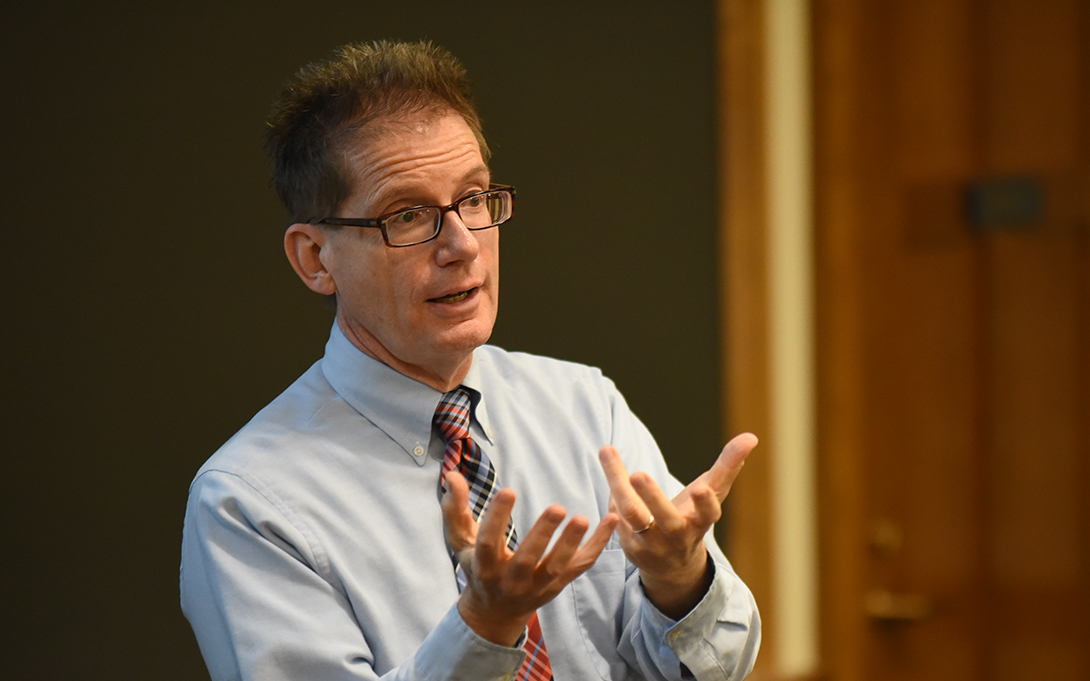
As part of a nine-member National Academy of Public Administration (NAPA) Working Group, Barry Rabe recommended near-time actions to address climate change to the next Administration. The group’s Steward Natural Resources and Address Climate Change report is one of 12 Grand Challenges in Public Administration, a list of the thorniest issues facing the nation in the decade ahead. The series of reports offer expertise and immediate practical steps from nearly 100 Academy Fellows.
Characterizing the natural resource and climate challenges faced in America, the report stated, “Given the litany of disasters in late summer 2020—all related in some way to climate change—it is more important than ever that we rise to the occasion.” They also cited major “force multipliers” and national security threats as a result of climate change.
Rabe said, “This project has served as a reminder to me not to assume that the challenges of natural resource and climate policy can be resolved with either legislation or executive actions. Instead, those are only starting points. We also need highly-functional federal, tribal, and state institutions to pursue implementation and integration across program divides. As we note, from forest protection to methane mitigation, climate protection is an all-hands-on-deck commitment that cuts across a great many government departments and agencies."
In their recommendations, the Working Group stated that significant actions should be taken at the domestic and international levels by the Administration in 2021 (whether reelected or newly elected). Although the report does not attempt to identify the legislative and regulatory efforts needed to fully address the Grand Challenge, their recommendations point toward early action while larger plans are debated and developed. The report outlined the following recommendations:
- Optimize and expand federal research and demonstration on climate solutions and technology to reduce greenhouse gas emissions.
- Embrace natural infrastructure as a key contributor to climate research.
- Coordinate and expedite renewable energy siting decisions to accelerate decarbonization of the power sector, including a focus on siting on degrading lands.
- Undertake a national effort to enhance forest health to build resilience to wildfire, enhance natural carbon storage, and strengthen habitats.
- Improve federal coordination across federal agencies with states, tribes, and local governments.
According to the report, these efforts can be achieved only if new and innovative partnerships with the private sector and between the federal, state, tribal and local governments are established. To mitigate climate change, the country needs to engage the world in strong diplomatic efforts to reduce global emissions.
“Our nation is currently experiencing tremendous upheaval on many fronts, and next year will be a crucial year as we attempt to control the coronavirus pandemic and address its social, political, and economic impacts,” said Terry Gerton, President and CEO of the Academy. “It is absolutely critical that our government take steps to tackle these challenges, starting immediately, and the Election 2020 Project papers offer a roadmap for meaningful progress. Authored by nearly 100 of our Fellows with in-depth expertise in governance and policy, these papers offer practical, nonpartisan recommendations that the next administration, regardless of political party, can use.”
Read the Steward Natural Resources and Address Climate Change Working Group recommendations.
About the National Academy of Public Administration
Chartered by Congress to provide non-partisan expert advice, the Academy is an independent, non-profit, and non-partisan organization established in 1967 to assist government leaders in building more effective, efficient, accountable, and transparent organizations. Learn more at www.napawash.org
